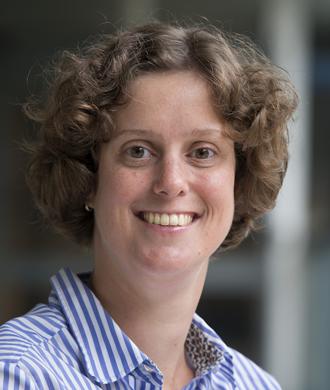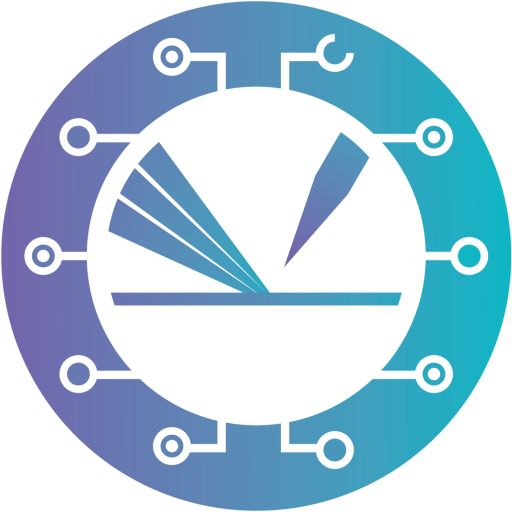Irene Groot
Universiteit Leiden, The Netherlands
Leiden Institute of Chemistry (LCI)
Wednesday, 06th July 2022,16:00 s.t.
The talk will be given in a hybrid mode.
You can either attend in physical presence:
TU Wien, Institute of Applied Physics,
Wiedner Hauptstraße 8-10, 1040 Vienna
Yellow Tower “B”, Seminar Room DB 05 B (5th floor)
Or you can join via Zoom:
https://tuwien.zoom.us/j/92739417554?pwd=MlFkNjJxUjFkUUhPaUJmZ0ZnMjVOZz09

Seeing is Believing: Atomic-Scale Imaging of Catalysts under Reaction Conditions
The atomic-scale structure of a catalyst under reaction conditions determines its activity, selectivity, and stability. Recently it has become clear that essential differences can exist between the behavior of catalysts under industrial conditions (high pressure and temperature) and the (ultra)high vacuum conditions of traditional laboratory experiments. These observations made it clear that meaningful results can only be obtained at high pressures and temperatures.
In this talk, I will give an overview of the in situ imaging techniques we use to study the structure of model catalysts under atmospheric pressures and elevated temperatures. We are able to perform atomic-scale investigations of well-defined model catalysts under industrial conditions, using in situ techniques such as scanning tunneling microscopy, atomic force microscopy, transmission electron microscopy, surface X-ray diffraction, X-ray photoelectron spectroscopy and optical microscopy. Scientific cases that I will discuss are oxidation of Pt(111) and Fischer-Tropsch synthesis on Co(0001).
Bio of Irene Groot
Irene Groot was born in Amsterdam. In 1999 she moved to Leiden to study chemistry. During her studies she did two research projects. The first one was performed at Leiden Observatory in the group of Ewine van Dishoeck. Here, Irene studied the physical behavior of CO and CO2 ices under interstellar conditions. Infrared spectra of the ices obtained in the laboratory were compared to spectra from space, thereby shedding light on the composition of ices present in the interstellar medium.
Irene performed her second research project at the University of California, Santa Barbara (USA) in the group of Alec Wodtke. Here, she participated in designing and building an ultrahigh vacuum set-up for the studies of inelastic scattering of HCl from Au(111) using supersonic molecular beams and resonance-enhanced multiphoton ionization spectroscopy.
After returning to Leiden, Irene started her PhD in 2005 under the supervision of Aart Kleyn and Geert-Jan Kroes. In this project she investigated the dissociation of hydrogen on bare and CO-precovered ruthenium, and on stepped platinum surfaces. This research was performed both experimentally, using supersonic molecular beams, and theoretically, using density functional theory and dynamics calculations.
After obtaining her PhD in 2009, Irene moved to the Fritz Haber Institute in Berlin, where she worked as a postdoc with an Alexander von Humboldt fellowship in the group of Hajo Freund. Here, Irene investigated the CO oxidation reaction in the mbar regime on metal oxide model catalysts using scanning tunneling microscopy, infrared spectroscopy, and gas chromatography.
In 2013 Irene obtained a Veni fellowship, with which she started working at the Leiden Institute of Physics in the group of Joost Frenken. Here, she studied the chlorine production reaction on ruthenium dioxide catalysts using high-pressure, high-temperature scanning tunneling microscopy. When Joost Frenken left at the end of 2013, Irene took over the catalysis activities of the group, including operando scanning probe microscopy, surface X-ray diffraction, transmission electron microscopy, and optical microscopy.
In July 2015, Irene moved to the Leiden Institute of Chemistry where she held a tenure-track position in the Catalysis and Surface Chemistry Group to continue her research in heterogeneous catalysis using imaging techniques under industrial conditions of high pressures and temperatures. As of June 2018, Irene obtained tenure and she is now associate professor.
